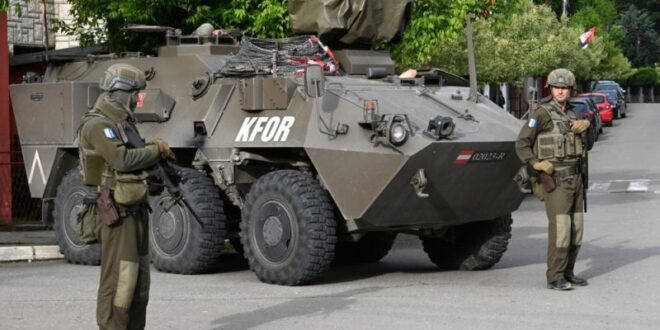Kosovo’s Prime Minister Albin Kurti has called for the additional KFOR forces deployed to Kosovo to ‘prioritise border security between Kosovo and Serbia, he said during a meeting with NATO’s peacekeeping mission commander in Kosovo, Özkan Ulutaş.
The discussions between Kurti and Ulutaş revolved around the security situation in Kosovo, particularly in the aftermath of the 24 September attack on the police in Banjska, Zvecan, during which Kosovo Police Officer Afrim Bunjaku was killed.
Kurti emphasised Kosovo’s keen interest in enhancing its cooperation with KFOR.
“The Prime Minister welcomed the increase in KFOR troops in response to Serbia’s terrorist attack in Kosovo. He stressed that this augmented presence should focus on safeguarding the border between Kosovo and Serbia, the point from which Serbia’s armaments originate, posing a threat to Kosovo. Ensuring border security also entails preventing illegal crossings, underscoring the essential need for greater collaboration with the Kosovo Police,” an official statement reads.
In the aftermath of the EU-dubbed ‘terrorist attack’, authorities seized a substantial quantity of weaponry in Kosovo’s Serb majority north. While Kosovo held Serbia responsible for the attack, Belgrade denied any involvement.
However, Milan Radojičić, the former deputy leader of the Serb List, the primary political party representing Serbs in Kosovo with Belgrade’s official support, claimed responsibility for the attack.
In response to the attack, NATO increased its presence in Kosovo by dispatching additional troops. Both the US and the European Union strongly condemned the assault and have called for a full investigation and Serbia’s cooperation.
In case of non-compliance, measures have been prepared against Serbia, similar to those against Kosovo, but also including matters related to its EU accession.
Kosovo has urged the European Union to impose punitive measures against Serbia, while EU officials have stated their intent to await the conclusion of ongoing investigations before deciding on potential actions and measures.
 Eurasia Press & News
Eurasia Press & News




